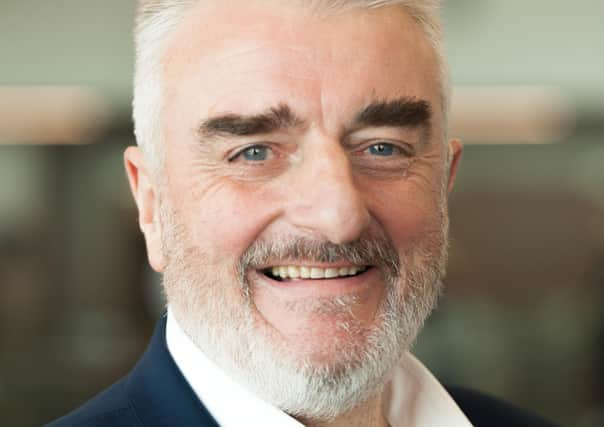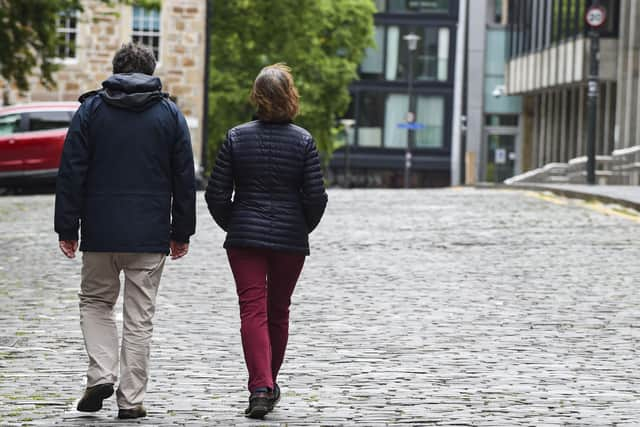Performing arts venues must plan for the worst to prevent a cultural catastrophe – Tommy Sheppard


Edinburgh. August. Empty. How weird is this? Usually by now our city would be teeming with multitudes of bright young things visiting from all corners of the globe.
As ever, local opinion would be divided. Many would be earning decent money with venues, bars and restaurants full to overflowing. Plenty would be enjoying the greatest show on earth. And others would be looking on with a mixture of curiosity and irritation.
Advertisement
Hide AdAdvertisement
Hide AdLike it or loathe it, for four weeks the festivals put their host city at the centre of the world. We were alive.


How different it is now. The city somnambulates through a wet and weary summer. We do what we can to avoid the contagion. We wait for a cure. There are upsides I know, cleaner air and the space to walk. But on balance it is all tragically depressing. All the more so because we can see no end.
Art and culture are the essence of our shared humanity. Using our voices and bodies we humans create story and spectacle for our peers. We express both universal truths and individual idiosyncrasies through our performance. We educate, inspire, and resist. We make sense of things. We cope. And in all of that we have fun, we defeat despair.
And this is an intensely social activity. Shared experience is not diluted, but reinforced, validated. Being in the audience for a live show whether it’s Frankie Boyle or Scottish Ballet on stage is a different, more intense and rewarding experience than watching remotely on your own. Indeed the latter only has meaning as a substitute for the former. Social distancing denies us this experience.
Advertisement
Hide AdAdvertisement
Hide AdThis stuff is part of who we are. We need to protect it. Not just the amazing people who perform on a thousand stages but those who make it happen. The designers, writers, directors, sound engineers, lighting technicians, costumiers, publicists, administrators, ticket sellers and others. The many who make the magic.
This is not just talent, but skill, insight and experience built up over decades. It is under threat. So, in this month, when our Capital’s streets are the most silent they’ve been in generations, we should resolve not to let all of this go to the wall in the age of coronavirus.
The mood of those who work in our arts and entertainment is as dark as the venues they run. Lockdown meant all income stopped instantly. For five long months they have tried to cope. Support from the UK and Scottish government has helped pay the bills and keep the staff on payroll. But not all of them. Reserves have been run down and debts run up. Now, as the job support scheme comes to an end in the next two months, catastrophe looms.
By now, most venue managers had been hoping to start opening – albeit with a reduced socially distanced capacity. Of course, that wouldn’t be viable in the long term – just as it isn’t for most bars and restaurants – but it would have slowed the rate of financial loss and delayed ruin.
Advertisement
Hide AdAdvertisement
Hide AdBut it hasn’t happened. In truth our cultural venues will not begin to find their feet again until we have an antidote for Covid. A vaccine that works and is widely available. That will not happen this year. It may not even happen next year.
So, now we need to plan for the worst. That means two things. First an assessment, venue by venue, company by company, of the essential people and resources required to survive a 12-month hibernation which retains the capacity to spring back once the public health emergency recedes. Secondly, a pragmatic and cautious plan for restart and recovery which recognises it could take three or four years for public confidence to allow the scale of audiences we had before March 2020.
Both plans only work if we, by which I mean our taxes, are prepared to back them. In return we can set loads of conditions from diversity in programming to the creation of training opportunities for local workers. We can even through local or national government agencies take a stake in the venues themselves. If we don’t it may be a very long time before our streets are filled with laughter and song again.
Tommy Sheppard is SNP MP for Edinburgh East
Comment Guidelines
National World encourages reader discussion on our stories. User feedback, insights and back-and-forth exchanges add a rich layer of context to reporting. Please review our Community Guidelines before commenting.